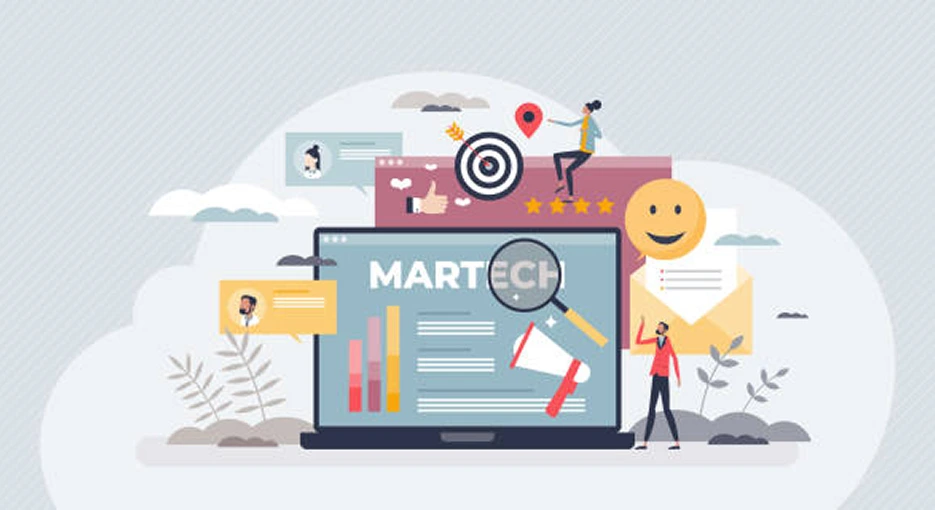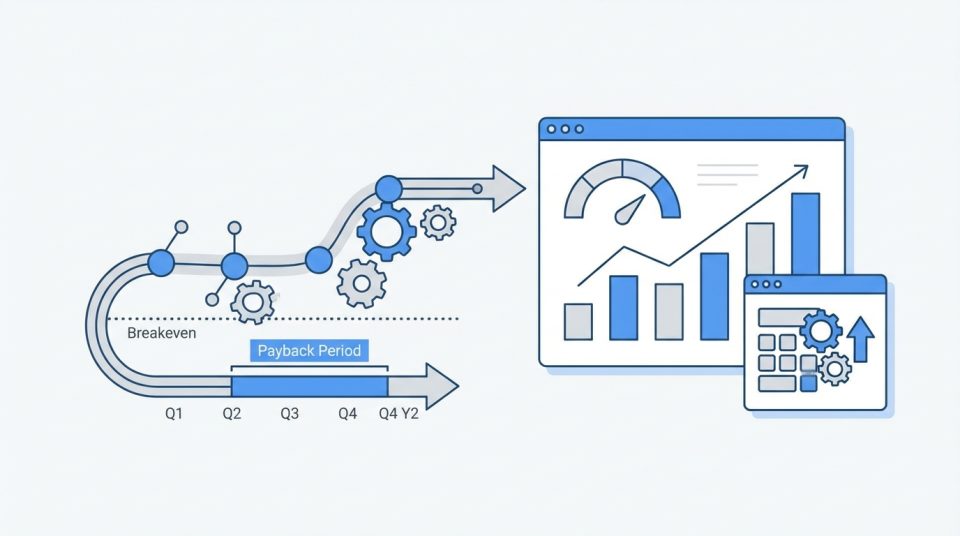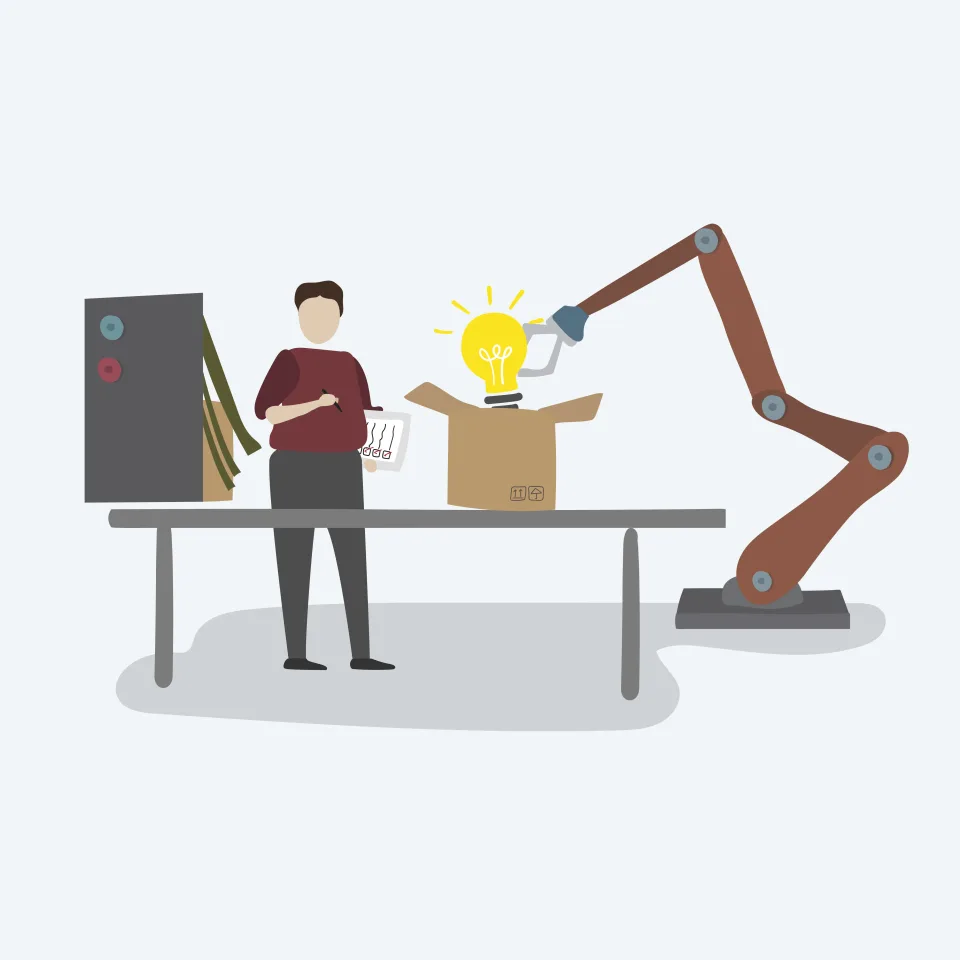
Why Marketing Technology Is No Longer Optional
Marketing technology is the backbone of successful campaigns in today’s fast-paced digital world. What is “marketing technology,” though? At its heart, it includes a set of tools and platforms—such as artificial intelligence (AI) and customer relationship management (CRM) systems, as well as marketing automation solutions—that help organizations engage with their audiences better. A modern marketing technology stack combines these parts to make things run more smoothly, help people make data-driven decisions, and provide personalized experiences.
It’s clear that technology is becoming more important in both B2B and B2C tactics. Businesses that used to do things by hand are now using AI to identify trends, CRMs to keep track of customer relationships, and automation tools to make their efforts bigger. It’s no longer a luxury to use marketing technology; it’s a must if you want to stay competitive in a market that is always changing. For example, a recent survey indicated that 80% of marketers think adopting new technology is essential for achieving client expectations, which shows how important it is.
AI in Marketing: Smart, Scalable, and Personalized
What AI in Marketing Actually Does
AI is shaking up how brands chat with and connect with customers. These clever AI systems dig into heaps of data to spot trends, guess what folks might do next, and handle routine jobs, which gives marketers room to focus on big-picture strategy. The impact of artificial intelligence on marketing is massive—think whipping up content or nailing the best spots for ads—and it moves faster and is more spot-on than we can alone. Plus, this knack includes sentiment analysis, where AI sifts through reviews to get a sense of how customers feel about a brand, helping companies really get to know their audience better.
Impact of Artificial Intelligence on Marketing Performance
You can see how much AI transforms the way marketing technology works. AI-powered analytics help businesses get more out of their campaigns by reaching the right individuals at the right time. For example, predictive analytics can give companies a heads-up when demand’s about to spike, letting them tweak their inventory or sales plans ahead of time. This ends up making customers happier and bumping up the number of folks who buy. Gartner’s research even points out that AI can boost marketing effectiveness by up to 30%, which really highlights how big a game-changer it can be.
Personalized Marketing Technology Using AI and Data
Using AI and data to craft marketing that really clicks with people is a fantastic way to get customers more involved. AI digs into your browsing history, buying habits, and preferences to serve up content tailored just for you—think personalized emails or product suggestions that feel spot-on. This kind of personal touch builds loyalty and keeps folks engaged, helping companies shine in those busy, crowded markets. Plus, you can tweak things in real time, keeping your messages fresh as your customers’ tastes shift.
Examples of AI Tools for Digital Marketing
There are a bunch of AI tools out there that show how technology is shaking up marketing today. Take HubSpot and Jasper—both use AI to whip up personalized emails and craft ad copy that grabs attention. These digital tools that make marketing work better are a solid example of how AI sparks creativity and saves time, which is why they’re a big deal for successful campaigns. And AI’s role is growing even more in visual marketing technology—take Adobe Sensei, for instance, which has leveled up how computers recognize images, opening new doors for graphic campaigns.
CRMs: The Operational Core of Modern Marketing Technology
Role of CRMs in Marketing Success
The key to using CRMs for marketing is that they put all of your customer information in one place. Salesforce and Microsoft Dynamics are two examples of CRMs that maintain track of your clients’ interactions, preferences, and purchase history so you can get the whole picture. This information will help you make ads that are more relevant and develop strong, long-lasting relationships, especially in fields where sales cycles are hard to predict.
How to Use CRMs for Better Marketing Results
Businesses can improve their marketing by using data to segment clients and setting up automated follow-ups with CRMs. For example, sending a personalized thank-you email after a purchase helps keep customers coming back. This shows how marketing technology can make the customer experience more fun. Keeping your CRM up to date on a regular basis also makes sure that the data is always correct, which is essential for efficient targeting.
Integrating CRM with Marketing Automation
Combining CRM with marketing automation makes your work much easier. Pardot and other tools connect CRM data with automated campaigns that send emails based on what customers do. This combination keeps your messaging the same and saves you time, which is one of the benefits of marketing automation tools. It also helps you avoid mistakes by making sure that every touchpoint fits with your brand’s language.
Aligning CRMs with Customer Journey Automation
When you align CRMs with customer journey automation, you need to plan out all the interactions that happen between the first “hello” and the end of the journey. Businesses may leverage CRM data to start automated nurture sequences that lead leads down the funnel with pinpoint accuracy, which increases engagement and conversions. This setup also maintains things stable across all media, which is very important for modern marketing to work.
Marketing Automation: From Campaigns to Journeys
Benefits of Marketing Automation Tools
Marketing automation technologies have a lot of benefits, such as saving you time, helping you nurture leads better, and increasing your return on investment. Automation takes care of the boring tasks, like scheduling social media postings and sending follow-up emails, so marketers can focus on coming up with new strategies. It also cuts down on mistakes by people, which keeps campaigns running smoothly.
Automating Customer Journeys
Automating client journeys makes sure that everything goes smoothly, from getting leads to keeping them. For instance, an e-commerce site might employ automation to send messages to those who left things in their cart, using modern marketing technologies to get back lost sales. You can change this for different groups of customers to get the most out of it.
How Automation Supports Strategy Execution
Automation is great for carrying out strategies, which shows how marketing technology may improve the consumer experience. By making sure that automated workflows are in line with company goals, businesses can send the same messaging across all channels, which builds trust and engagement. With this approach, you can easily test and change campaigns on the go.
Common Use Cases in Different Industries
Marketing automation is used in a lot of different fields. In retail, it makes product suggestions more interesting; in B2B, it helps leads get through those long, winding sales cycles. These instances of technology in modern marketing show how flexible and powerful it can be. For example, in healthcare, automation helps keep track of patient follow-ups.
Martech Stacks: The Foundation of Tech-Enabled Strategy
What is a Martech Stack in Marketing?
So, what does a martech stack in marketing mean? It’s a well-thought-out set of technologies, including CRMs, analytics platforms, and automation software, that work together to make your marketing plans come to life. A well-put-together stack makes data and processes flow together easily, kicking off tech-enabled marketing and keeping all your projects in harmony.
Martech Stack Essentials for Businesses
A solid martech stack for companies should pack a CRM for customer data, an analytics tool to size up performance, and automation to handle campaigns. These bits work as a team to keep your approach steady, tapping into digital tools that level up marketing performance and grow your business over time.
Examples of Martech Stacks in Action
Want a peek at martech stacks in action? Look at Adobe Experience Cloud for big players or HubSpot for small outfits—real-world examples that keep things running smoothly. They show how different businesses use technology in marketing to hit their targets, with tweaks to suit their unique needs.
How to Choose the Right Tools
When choosing the correct equipment, you should consider what your business requires, how much money you have, and how much room it has to grow. Start with a CRM, add some AI-powered analytics, and finish with automation. Make sure the stack fits with your marketing goals and improves the customer experience. Also, regular check-ins might change it to match new needs.
How Marketing Technology Enhances Customer Experience
Real-Time Data and Personalization
Businesses may change material on the fly since they have access to real-time data and can customize it. AI watches how people use websites and helps those sites change in real time to meet the needs of each user. A key aspect of how marketing technology makes things better for customers and fosters trust is this.
Predictive Analytics and Dynamic Segmentation
With some historical data, predictive analytics, and dynamic segmentation, it we can estimate patterns and quickly divide clients into groups. This keeps campaigns hitting the right folks, staying relevant and engaging across different markets, with tweaks based on how well they’re doing.
Conversational Marketing, Chatbots, and Self-Service
Customers can connect on their own terms with conversational marketing, chatbots, and self-service options. AI-powered chatbots jump in fast to lend a hand, boosting happiness and showing how CRMs can team up with other tech to supercharge marketing.
How Marketing Technology Improves Customer Experience
What makes marketing technology awesome at delighting customers is personalization, speed, and smarts. Whether it’s a custom email or support that beats you to it, tech makes every moment feel personal. This keeps clients loyal and coming back, which is a big win for long-term success.
Cross-Industry Examples: Marketing Technology in Action
Retail and eCommerce: Personalizing at Scale
Scaling up personalization in retail and e-commerce is a game-changer. Shopify uses automation to track orders, while Amazon leans on AI for product picks, showing how different businesses use technology in marketing to drive sales and keep customers hooked.
B2B Digital Marketing Agencies Using Integrated Martech
Integrated martech gives B2B digital marketing companies a boost. They use CRMs to track prospects and AI to polish content, proving how marketing technology can simplify tough sales processes, especially when cycles stretch out.
Healthcare, Education, and Finance Examples
Healthcare uses technology for campaigns to get patients involved, education for advertisements that teach people how to learn, and finance for ads that target specific investments. These examples of how technology is used in modern marketing show how adaptable it is, since it can handle the problems that each business faces.
How Different Industries Use Tech in Marketing
Retail focuses on personalization, B2B on lead nurturing, and healthcare on developing trust. Each industry uses technology in marketing in a way that meets its demands. This mix shows how adaptable marketing technology is in general, and new ideas are driving even greater growth.
Embracing the Future with a Tech-First Marketing Approach
Marketing technology is changing the game by making things more efficient, personal, and profitable. AI in marketing, CRMs, and automation tools help businesses remain ahead of the competition, and a strong martech stack makes sure they can expand big. In a crowded field, knowing how AI affects marketing, how CRMs help marketing work better, and how automation tools may help you get ahead will help you stand out. In a competitive field, knowing how AI changes marketing, how CRMs can help you succeed in marketing, and how marketing automation tools may help you beat the competition can offer you an edge.
It’s time to check your current stack. Are your tools giving you the information and results you need? At Stremeline, we specialize in customizing marketing technology solutions to help you do better. Schedule a consultation today to see how we can use AI and data-driven techniques to improve your marketing initiatives. To find out more about how Stremeline can help you be a leader in how AI is changing modern marketing, go to stremelinedigital.com or connect with us on LinkedIn. You can use our knowledge to get the most out of marketing technologies and expand your business in a lasting way.



